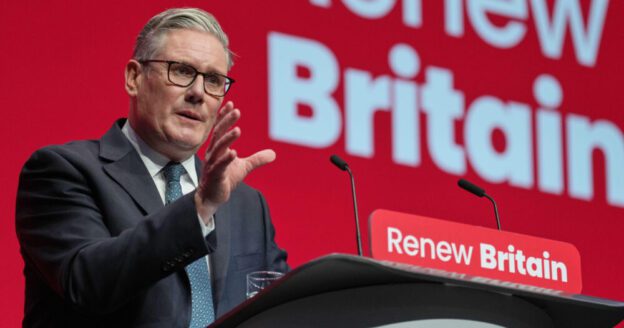It’s all coming up digital: the government’s solution to the woes of the NHS
In November’s budget, the Chancellor unveiled a £300 million package of new capital investment for NHS technology. The package includes funding for digital tools designed to automate administrative tasks, streamline clinical workflows and give staff quicker, more reliable access to patient information. It is a continuation of a now-familiar message: digital transformation is at the heart of the government’s plans to modernise the health service and make it fit for the future.
The government also announced plans to create 250 neighbourhood health centres – an initiative aimed at ending the ‘postcode lottery’ of healthcare access. These centres are intended to operate as digitally enabled community hubs that will bring together GPs, nurses, dentists and pharmacists to provide end-to-end care and tailored support. As such, their success is tied directly to the government’s broader digitalisation agenda.
Construction of the centres will follow a ‘new approach’ between the public and private sectors, drawing on both repurposed estates and new-build sites. However, the physical infrastructure is only half the story. The model relies on shared digital tools that allow health, social care and other local services to work together seamlessly. This creates significant opportunities for public-private collaboration not only in the construction, but also in the delivery, integration and ongoing support of the digital systems that will underpin these centres.
This reframing of the NHS as a neighbourhood, rather than national, health service signals that ministers see a community-centred, digitally powered model as essential to curing the NHS’ longstanding issues. Ministers also believe it will facilitate its long-term viability, particularly in light of the growing pressure on the health service stemming from the UK’s rapidly ageing population and the growing number of people living with complex conditions.
Achieving high quality and consistent access to community services across the country will depend on harmonious digital capability across regions. Many NHS trusts still operate disparate legacy systems that limit interoperability, impede collaborative decision-making and prevent seamless access to patient data. For neighbourhood health centres to function as intended, central government must set out a clear, unified digital strategy that individual trusts can implement at pace, ensuring that local demographics and existing infrastructure are properly accounted for.
New data shows that national direction can drive adoption. NHS England reported that more than eight million people submitted a GP request online in October – up 21% from the previous month and 68% year-on-year. This increase demonstrates that when investment, professional willingness and patient buy-in align, digital tools can rapidly become embedded in everyday care. The rise of the NHS’s ‘digital front door’ offers a blueprint for what could be achieved with the new neighbourhood centres.
The government is betting that digitalisation will aid people’s access to the health service and improve patient outcomes. By pairing investment in digital infrastructure with the rollout of neighbourhood health centres, ministers are seeking to reshape both the sites of care and the systems that support it. Whether the strategy succeeds will depend not only on funding and planning, but also on collaboration with private sector specialists as a crucial partner to government in achieving its objectives.
Please contact Sophie Duley via sophie@gkstrategy.com if you would like to discuss the government’s ambitions for digitalisation in the health service in more detail.







